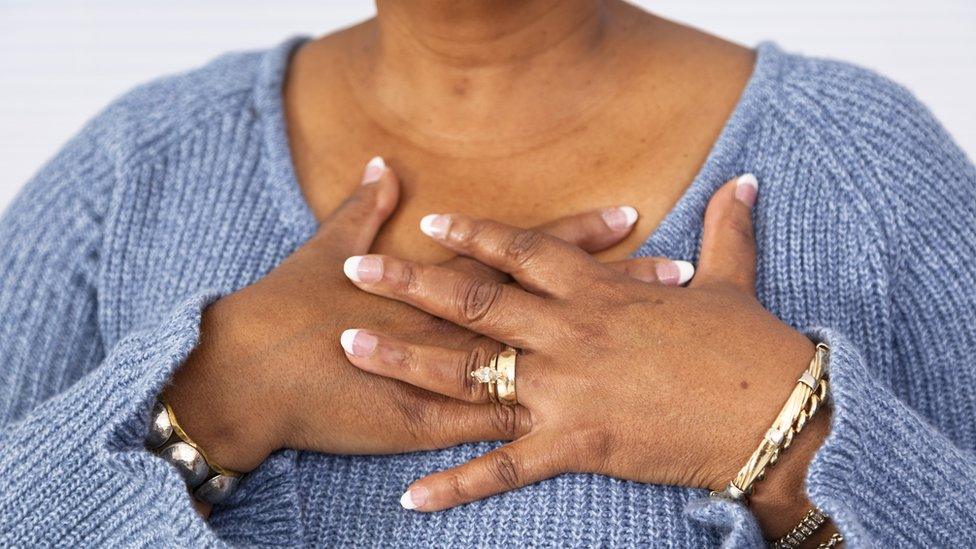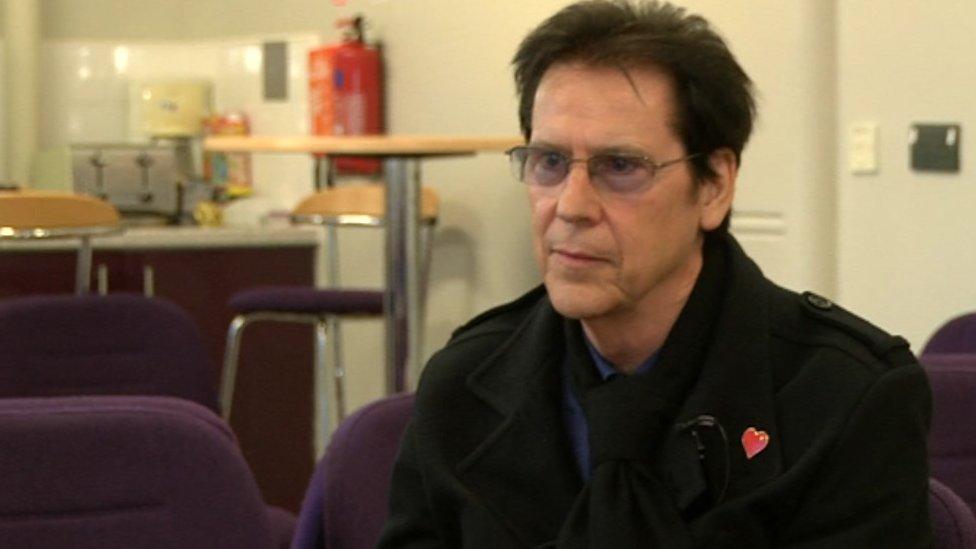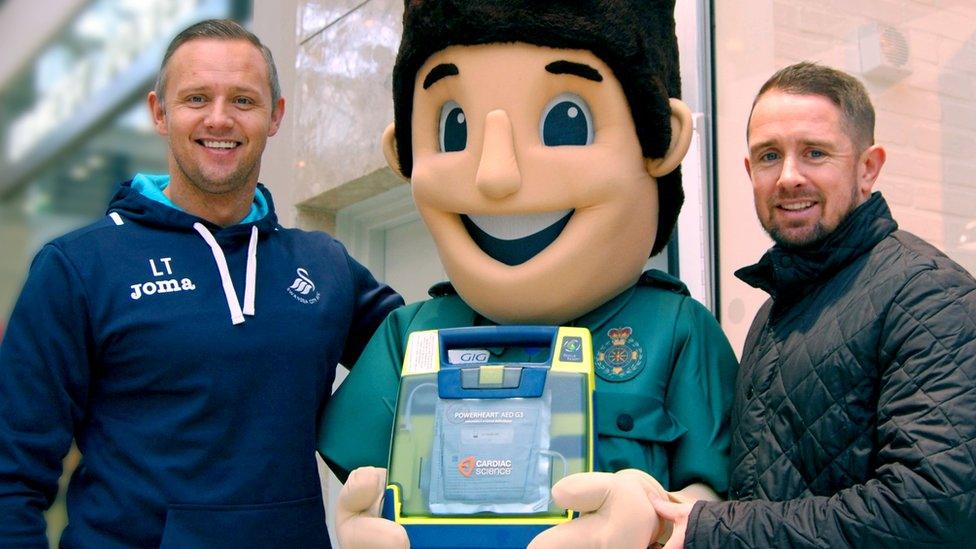Letterston woman's shock at having heart attack at 45
- Published

Jules Conjoice says she thought she was having an allergic reaction rather than a heart attack
"There are still times when I can't get my head around that it's happened to me - that I've had a heart attack."
Jules Conjoice, 47, from Letterston in Pembrokeshire, was just 45 when she had a heart attack - although at the time she did not realise it was happening.
She became ill with chest pains and nausea after a shopping trip with her husband on New Year's Eve two year ago - but put it down to a possible allergic reaction.
She is now backing calls for women to become familiar with the symptoms of a heart attack after the British Heart Foundation said women took longer to seek help and were three times more likely to die from a heart attack than men.
"Heart attacks are often seen as a male health issue, but more women die from coronary heart disease than breast cancer in the UK," said Prof Jeremy Pearson, associate medical director at the charity.

Mrs Conjoice had stents fitted after her heart attack
Mrs Conjoice, a mother of four, said: "It was really scary. I came in from shopping and I said to my husband, 'I really don't feel well'. I couldn't put my finger on it but something wasn't quite right.
"I sat down and I had a pain in my chest and going through to my back and it started to get worse. I could feel it going up into my jaw and down my arm.
"I suddenly had this overwhelming clamminess and sweatiness and I thought 'I'm going to be sick'... I said to my husband 'you're going to have to call for some help, something's not right here'.
"I hadn't long taken an antibiotic and I thought I was having an allergic reaction. I never even regarded that it could be a heart attack."

Most deaths from coronary heart disease in Wales are caused by a heart attack
In Wales nearly 10,000 hospital visits each year are attributed to heart attack
About 50,000 people alive in Wales today - 35,000 men and 15,000 women - have survived an MI (the most serious type of heart attack)
In the 1960s more than seven out of 10 heart attacks in the UK were fatal. Today at least seven out of 10 people survive
Source: British Heart Foundation

Mrs Conjoice said even the paramedics did not believe her illness was cardiac related.
But, after her husband insisted she be taken to Withybush Hospital, a doctor who examined her became suspicious and ordered blood tests, an electrocardiogram (ECG) and a chest X-ray.
It was then Mrs Conjoice realised her condition could be serious.

Mrs Conjoice said she is now determined to enjoy her life and has started going to music festivals
However, she said she was shocked when she was told she had had a heart attack.
"I eat quite healthily and my cholesterol wasn't high - it's not high now, even though I'm on statins.
"I have no idea... there's still times when what happened takes me by surprise. I think 'God, how lucky am I?'"
Mrs Conjoice had stents put in following her heart attack and has been fine since, although she said she suffered from depression and anxiety that it would happen again.

Symptoms of a heart attack, external can include:
Chest pain - a sensation of pressure, tightness or squeezing in the centre of your chest
Pain in other parts of the body - it can feel as if the pain is travelling from your chest to your arms (usually the left arm but it can affect both), jaw, neck, back and abdomen
Feeling lightheaded or dizzy
Sweating
Shortness of breath
Feeling sick or being sick
An overwhelming sense of anxiety (similar to a panic attack)
Coughing or wheezing
Although the chest pain is often severe, some people may only experience minor pain, similar to indigestion
In some cases, there may not be any chest pain at all, especially in women, the elderly and people with diabetes
Source: NHS

She spoke out as researchers said fewer women who suffer a heart attack would die if they were given the same treatments as men.
Women were two times more likely to die from the most serious type of heart attack than men in the year after having one - with women often being misdiagnosed and given different treatment.
Prof Chris Gale, co-author of the study from the University of Leeds, said it was important to highlight the fact that heart attack victims often did not follow the stereotype.
"Typically, when we think of a heart attack patient, we see a middle-aged man who is overweight, has diabetes and smokes," he said.
"This is not always the case; heart attacks affect the wider spectrum of the population - including women."
Researchers analysed the outcomes of 180,368 Swedish patients who suffered a heart attack over a 10-year period.
- Published8 January 2018

- Published16 October 2017

- Published21 February 2017

- Published1 February 2017
